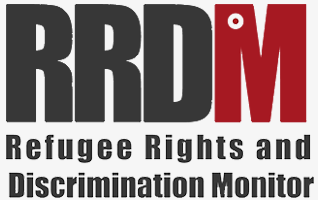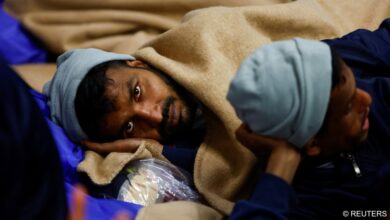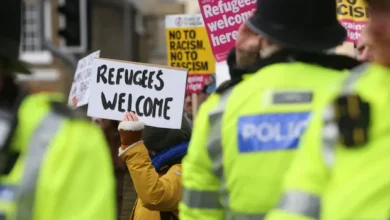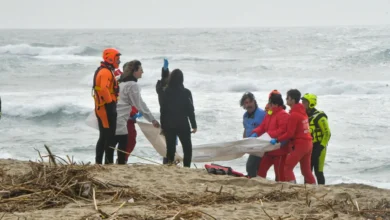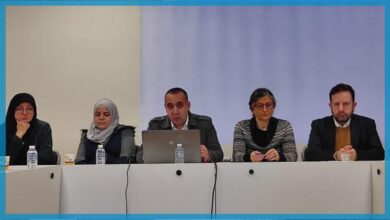A Debate Between Turk Students In Istanbul About “Syrian Refugees”
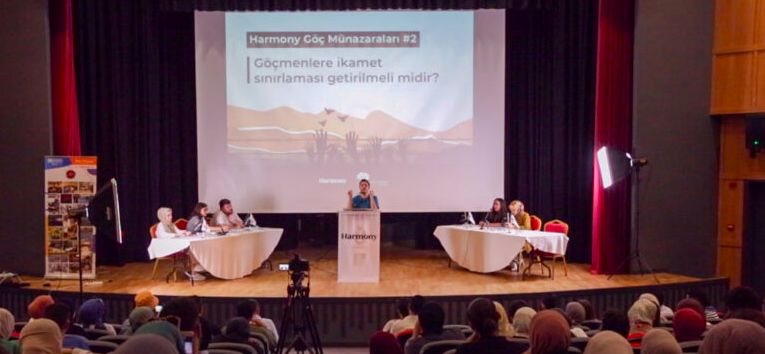
The seasonal racist discourse by Turkish politicians is rising with the approach of the Turkish presidential elections, as the issue of the deportation of refugees is an essential material in this discourse.
About ten months separate Turkey from the general elections, scheduled for June of 2023, when Turks will elect a new president and 600 members of the Grand National Assembly (Parliament) for a 5-year term.
As the date approaches, political parties opposed to the ruling party are using the issue of deporting Syrian refugees as an electoral card to win the votes of the Turkish street.
The rhetoric against refugees in general, and Syrians in particular, has generated fears and a feeling among most refugees that they are an unwanted group in the country, with the absence of any advocacy or support rhetoric during the past months, with the exception of some initiatives.
The racist discourse was gradually reflected on the lives of Syrians in the Turkish street, as some of them turned into attacks and sabotage of their property, and some of them developed into murders of Syrian youths during different periods of time.
The Turkish “HARMONY” organization, in the Uskudar district of Istanbul, presented an initiative that differs from what Syrians used to hear over the past two years, as it organized a debate between two groups of university students about Syrians.
The two sides of the debate divided opinions between a supporter of restricting the presence of Syrians in certain cities and places, deploying them in Turkish cities and states, or allowing them to move freely in them.
About the distribution of the Syrians
Although the term debate may imply the presence of two different parties on an issue, the debate held in the youth center was characterized by a friendly atmosphere between the two parties, who are students of different universities in Istanbul, as neither party adopted a rhetoric hostile to the presence of refugees in Turkey, but the discussions focused on Adjust this presence.
The two teams consisted of three interlocutors of both sexes, with a platform in the middle of them allowing one of the team members to talk about his arguments and provide information to prove his point of view whether the government should restrict the presence of Syrians in Turkish cities or not.
During the debate, the first team tried to explain the necessity of imposing a restriction on the movement of refugees for many reasons, the most important of which is to prevent the formation of population groups for Syrians in certain areas, such as the Fatih area in Istanbul.
This team considered that the formation of these blocs may prevent Syrians from integrating into Turkish society, or cause them to find it more difficult to learn the Turkish language, given that they remain within their narrow framework among Arabic-speaking Syrians only.
One of the participants in the debate, a student majoring in architecture, spoke about the urban architecture of Istanbul, as she considered that the city suffers from old problems, which were increased by the population explosion that it witnessed during the past few years, which exacerbated these problems, which the Syrians cannot bear, Rather, they were a factor in exacerbating it.
humanitarian duty
The first group also had its reasons for the necessity of distributing the Syrians among the Turkish states, while the second group presented its arguments about the necessity of allowing refugees to move freely, including humanitarian and economic reasons.
The members of the two teams also took turns going up to the stage to present their views, but the common link between all members of the two teams was the humanitarian duty, as “inhuman” practices against a group of people cannot be justified, and they are held responsible for problems in some regions.
During the interventions, participants spoke about the term “ghetto,” as a description of the agglomeration state that Syrians live in in some areas and cities, between supporters from a humanitarian perspective, and opponents from an urban and societal perspective.
A ghetto refers to an area in which there is living, voluntarily or involuntarily, a group of people considered by the majority of people to be a background of a particular ethnicity, culture or religion, and it is a description used to describe the slums found in modern urban areas.
One of the participants did not see any problem with Syrians going to Syrian shops and Turks going to Turkish shops, as he considers that none of these practices have a negative impact on society, so whoever wants to learn the language will learn it in one way or another.
Nor can some people be deprived of their jobs, because some see that the population distribution is not suitable for the infrastructure of the place.
Motives for racist speech
The two parties differed on the way the Turkish government deals with the Syrian refugees, and their distribution within Turkey, but the two parties considered that some of these ideas became a justification for some Turkish politicians to address an anti-refugee rhetoric.
The blocs established by Syrians in some neighborhoods, according to one of the two groups, have become a justification for a racist discourse directed against them by some parties and their supporters, as does the Turkish “Zefar” party, and its leader Umit Ozdag.
However, the other team saw that Özdag was not looking for a justification to direct a racist anti-refugee discourse, as many of the stories he promoted about Syrian refugees were unfounded, and he deleted them from his Twitter account after their falsehoods were exposed.
About the Turks in Europe
After the debate, “harmoney” hosted a professor of political science and public administration on the stage of the Youth Center in Üsküdar, Faik Tanrikulu, who in turn spoke about the racism that Turkish citizens had previously faced in Europe for the same reasons that Syrians face today.
Through the many examples provided by Tanrikulu, he tried to bridge the gap between the views on the racism that Turks were subjected to in the past and that Syrians are subjected to today in Turkey.
Many of the advice that Tanrikulu gave to the audience from films or books that talk about the reality of racism in the world, to learn from past experiences, in addition to other examples of racism faced by Jews in Germany during the era of Nazi rule, white racism against blacks in America, and racism suffered by Turks In France and Germany, and another that Tanrikulu himself was exposed to, personally, during travel trips to the European Union.
